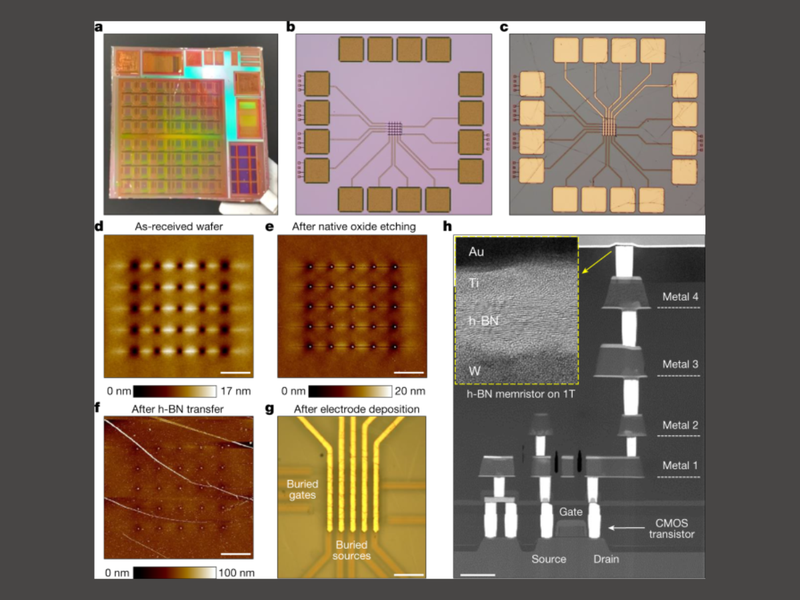Xerrada 'Hybrid 2D/CMOS microchips for memristive applications' - 24 d'octubre
17/10/2024
El Nanonetworking Center in Catalunya (N3Cat) , grup de recerca amb docència a l'Escola Tècnica Superior d'Enginyeria de Telecomunicació de Barcelona (ETSETB) presenta la xerrada "Hybrid 2D/CMOS microchips for memristive applications" a càrrec del professor Mario Lanza, expert mundial en nanoelectrònica, de la National University of Singapore.
Hybrid 2D/CMOS microchips for memristive applications
- 24 d'octubre
- 15 h
- Room C6-E106, entrada sud (davant FIB B6) del Campus Nord UPC
- Xerrada gratuïta
Abstract
Two-dimensional (2D) materials have outstanding physical, chemical and thermal properties that make them attractive for the fabrication of solid-state micro/nano-electronic devices and circuits. However, synthesizing high-quality 2D materials at the wafer scale is difficult, and integrating them in silicon microchips brings associated multiple challenges. Nevertheless, in the past few years substantial progress has been achieved and leading companies like TSMC, Intel and Samsung have started to work in this direction too. In this talk I will discuss how to integrate 2D materials in micro/nano-electronic devices, circuits, and microchips, giving a general overview of the global progress achieved in the field and presenting our last developments in hybrid 2D/CMOS applications. I will put special emphasis on devices and circuits for memristive technologies, including data storage, computation, encryption, and communication. I will also discuss the main technological challenges to face in the next years and provide some recommendations on how to solve them.
Bio
Mario Lanza is an Associate Professor of Materials Science and Engineering at the National University of Singapore, since August 2024. He got the PhD in Electronic Engineering in 2010 at the Autonomous University of Barcelona, where he won the extraordinary PhD prize. In 2010-2011 he was NSFC postdoctoral fellow at Peking University, and in 2012-2013 he was Marie Curie postdoctoral fellow at Stanford University. On September 2013 he joined Soochow University (in China), where he promoted until the rank of Full Professor. Between October 2020 and July 2024 he was full-time Associate Professor at the King Abdullah University of Science and Technology (in Saudi Arabia), where he became known for his work in the field of nano-electronics. He has published over 200 research articles in top journals like Nature, Science and Nature Electronics, many of them becoming highly cited. He has been plenary, keynote, tutorial and invited speaker in over 150 conferences, and he and his students have received some of the most prestigious awards in the world (like the IEEE Fellow). He has been often consulted by leading semiconductor companies and publishers. He is an active member of the board governors of the IEEE – Electron Devices Society, and has been involved in the technical and management committee of top conferences in the field of electron devices, including IEDM, IRPS and IPFA. He speaks fluently five languages: English, Chinese, German, Spanish and Catalan.

Comparteix: